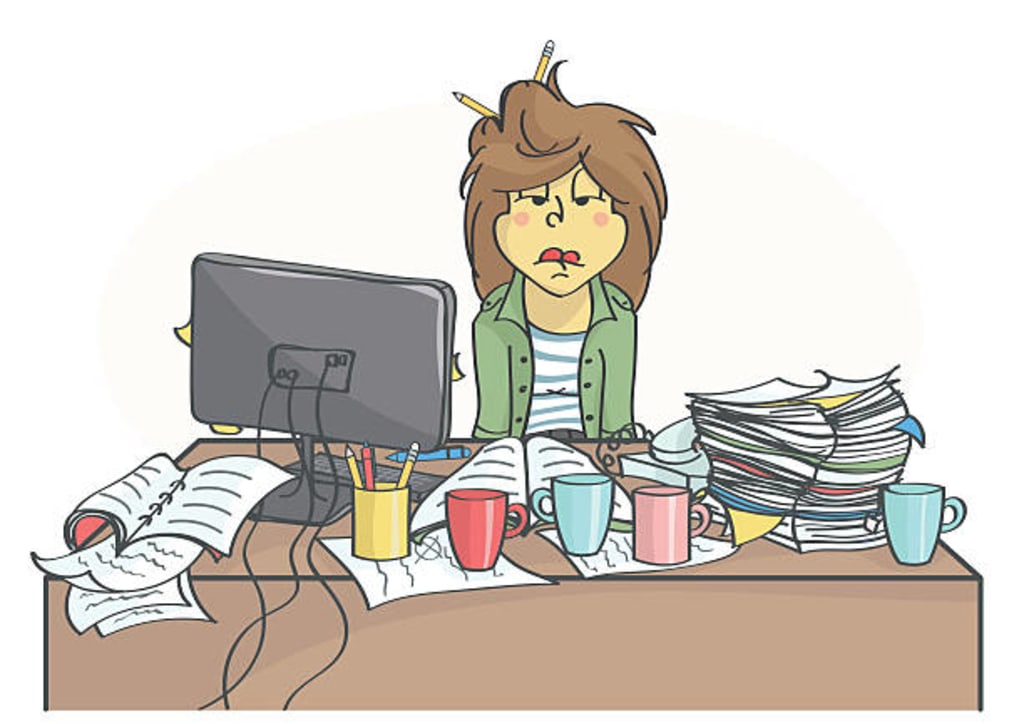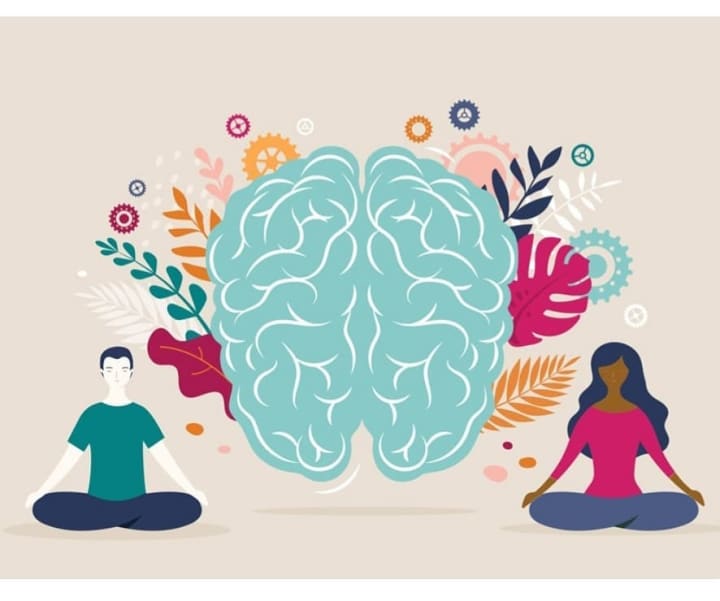Stop Multitasking: You'll Fry Your Brain.
I once wore my skill of multitasking as a badge of honor, but I was delusional.

The modern world celebrates multitasking as a badge of honor. We juggle emails, phone calls, deadlines, and social media notifications, feeling like masters of efficiency. But what lurks beneath this illusion of productivity are a number of hidden costs.
Neuroscientist Earl Miller once said, "People can't multitask very well, and when people say they can, they're deluding themselves." Studies have shown that our brains are actually rapidly shifting between tasks, giving us the impression that we are multitasking. Each time our brain moves between tasks, a “switch cost” occurs, meaning that it experiences a momentary setback as it redirects its attention. This cost manifests as a temporary decline in cognitive abilities, leading to errors and slower completion times. The constant switching and pressures of multitasking n our brain, also triggers a hormonal cascade that can have dire consequences for our mental and physical well-being.

We’ve all heard of the "fight-or-flight" response, right? That's cortisol at work. Multitasking sends our brains into a perceived state of constant threat, prompting the release of cortisol, the stress hormone. This surge is meant to give us a burst of energy to deal with the immediate danger, but in the chronic, low-grade stress of multitasking, it becomes something toxic. Cortisol's partner in crime, adrenaline, also gets a surge during multitasking. This can lead to increased heart rate, blood pressure, and anxiety, leaving us feeling on edge and jittery. Imagine trying to run a marathon while constantly checking your phone; that's the physiological strain of multitasking.
Cortisol and adrenaline are not cognitive boosters. They actually impair our prefrontal cortex, which is responsible for focus, planning, and decision-making, which leads to decreased concentration, memory lapses, and poor judgement. It's the exact opposite of what we need for efficient productivity.
The constant juggling act feeds into our already existing anxieties. We worry about missed deadlines, unfinished tasks, and the fear of falling behind. This perpetual loop of stress and anxiety fuels a negative feedback cycle, further depleting our mental resources. This chronic state of stress isn’t just about feeling overwhelmed in the moment. It can also have lasting effects on our brain health.
Studies have linked chronic stress to an increased risk of depression, anxiety disorders, and even cognitive decline, as well as a number of physical health issues. Multitasking might seem like you’re winning in productivity, but it could be setting us up for a lifetime of struggle.
How Not to Fry Your Brain

1. Embrace Single-Tasking
It's counterintuitive, but focusing on one task at a time is actually the key to improved productivity and reduced stress. Give each task your full attention, and you'll be surprised at how much more you can accomplish with a calmer mind.
2. Schedule Breaks
Step away from the constant stimulation. Take short breaks throughout the day to de-stress, meditate, or simply breathe deeply. Give your brain a chance to recharge and come back to your tasks with renewed focus.
3. Prioritise and Delegate
Not everything needs your immediate attention. Learn to prioritise tasks and delegate when possible. Focus on what truly requires your expertise, and let go of the rest.
4. Create a Calm Environment
Minimise distractions, clutter, and noise in your workspace. A calm environment promotes focus and reduces stress, making it easier to tackle tasks without the burden of multitasking.
Multitasking is an illusion that comes with a number of hidden costs. The constant switching and demands of juggling multiple tasks trigger stress overload, leading to anxiety, diminished cognitive function, and even long-term mental and physical health risks. Our true potential for focused productivity and a healthier mind can be unlocked by embracing single-tasking, setting priorities, and cultivating a peaceful environment. The next time you want to fry your brain by multitasking, keep in mind that sometimes less really is more.
About the Creator
Nicole Gibson
Running on coffee and true crime.
I am passionate about self-development and personal growth. I find immense fulfillment in the continuous journey of learning, honing new skills, and embracing personal evolution.






Comments (1)
its quality writing and informative approach.